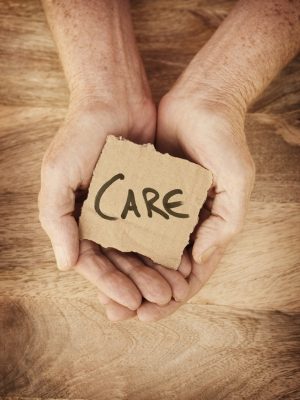
Abuse and Neglect
Dependent Adult Abuse Attorney
California law protects these vulnerable individuals and provides remedies in the form of civil claims for damages.

.
The CDA investigates claims of disabled persons’ abuse and neglect in long-term care facilities and will provide legal advocacy services for those seeking compensation through civil action or criminal prosecution.
Contact our firm today for a free initial consultation to discuss how your family can pursue justice and compensation. When you choose our firm, you owe no legal fees unless and until we recover compensation for you.
Abuse and Neglect Attorneys in California
We provide extensive support and are available to talk whenever you need us.
When your family has a member with a disability or special needs, you may seek assistance from organizations and care providers. The majority of professionals who work with people with disabilities and special needs give great care and assistance. Sometimes, families uncover evidence of abuse or neglect of their vulnerable loved ones.
If you suspect that your loved one is being abused or neglected while living in a long-term care facility, you should contact the Center for Disability Access immediately and report your concerns.
Frequently Asked Questions
California Welfare and Institutions Code § 15610.23 defines a “Dependent adult”
(a) “Dependent adult” means any person between the ages of 18 and 64 years who resides [in California] and who has physical or mental limitations that restrict his or her ability to carry out normal activities or to protect his or her rights, including, but not limited to, persons who have physical or developmental disabilities, or whose physical or mental abilities have diminished because of age.
(b) “Dependent adult” includes any person between the ages of 18 and 64 years who is admitted as an inpatient to a 24-hour health facility, as defined in Sections 1250, 1250.2, and 1250.3 of the CA Health and Safety Code. This can include any medical office or hospital setting that provides full time 24 hour a day care.
These individuals belong to protected classes under the law due to their physical and mental disabilities.
Dependent adult abuse and neglect refers to the physical, psychological, or financial mistreatment of individuals who are considered vulnerable due to their age or disability.
This can include both intentional acts, such as physical assault or emotional abuse, as well as unintentional actions that negatively impact a person’s well-being, such as neglect or financial exploitation.
California law says dependent adult abuse is:
- Physical abuse, neglect, financial abuse, abandonment, isolation, abduction, or other behavior that causes physical harm, pain, or mental suffering; or
- Deprivation by a caregiver of things or services that the dependent adult needs to avoid physical harm or mental suffering.
- Bedsores
- Confusion
- Depression
- Poor personal hygiene
- Self-destructive behavior
- Extreme withdrawal or agitation
- Being unclothed, or improperly clothed, for the weather
- Ambivalent feelings toward caregivers or family members
- Unexplained injuries or unbelievable explanations for injuries or bruises
- Loss of weight or signs of dehydration (extreme thirst, fragile skin, apathy, mental confusion)
- Lack of items needed like glasses, dentures, wheelchair, walker or cane
- Failing to provide adequate nourishment
- Reducing social interactions and contacts
- Leaving the person alone for extended periods of time
- Failing to provide adequate clothing for weather conditions
- Not meeting basic hygiene needs like bathing and teeth brushing
- Not seeking medical treatment for worsening physical or mental illnesses
- Failing to provide a safe environment that reduces the risk for falls and injuries
- Not providing necessary medications and physical therapy (medication mismanagement)
- Living in unsanitary conditions (insects, lack of utilities, faulty plumbing, faulty wiring, poor ventilation, etc.)
The disabled do not typically complain about abuse and neglect, either due to fear or embarrassment.
Therefore, it is up to family members and friends to be aware of the signs of abuse, neglect, financial exploitation, and emotional abuse so that they can take steps to address these issues before they escalate.
The Center for Disability Access can investigate claims of dependent adult abuse and neglect in long-term care facilities and will provide legal advocacy services for those seeking compensation through civil action or criminal prosecution.
Schedule a Free Consultation Today!
When you choose our firm, you owe no legal fees unless and until we recover compensation for you.
The Center for Disability Access
100 Pine Street Suite 1250 • San Francisco, CA 94111
Phone: (415) 534-1911 • Monday – Friday, 8:00 am – 5:00 pm
Schedule a Free Consultation
We offer free case evaluations to help you determine if you have a valid claim.
No Fee Unless We Win Your Case
If we are unable to prevail in your case, you will not be responsible for paying any fees to us.
Providing Legal Service in California
Legal representation to individuals facing disability rights, housing rights, and other related issues.
Dedicated to Defending and Advocating for Equality and Accessibility for All.
- Abuse and Neglect Lawyer
- Disability Access Lawyer
- Employment Discrimination Lawyer
- Housing Accessibility Lawyer
- Paralysis Injury Lawyer
- Traumatic Brain Injury Lawyer
- Website Accessibility Lawyer
- Privacy Policy

